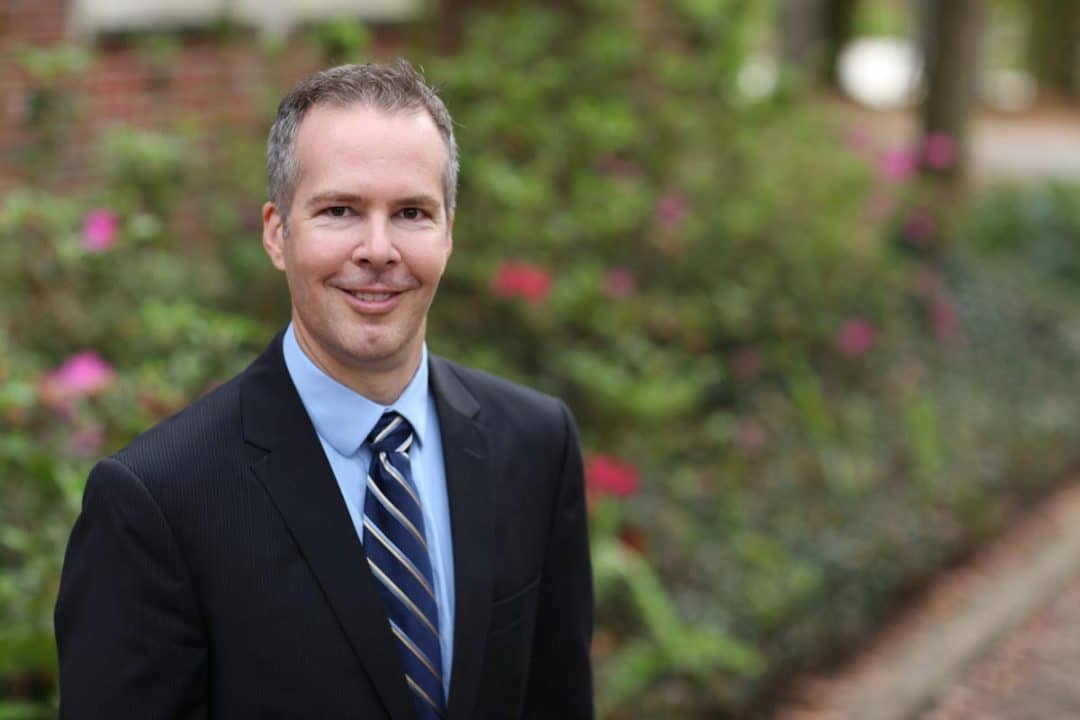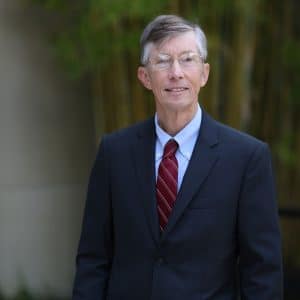A Year to Remember
The 2015-16 academic year was an eventful one for accounting professor Dr. Marcus Kirk. He was promoted to Associate Professor, and was named to Poets & Quants’ 2016 “Most Outstanding 40-Under-40 Business School Professors” list.
Learn more about Dr. Kirk, the impact his promotion may have on his research, what the honor from Poets & Quants meant to him, and why the Fisher School of Accounting is so special.
What does it mean to you to receive your promotion to Associate Professor with Tenure?
The promotion means happiness that my colleagues are willing to put up with me longer and relief from uncontrollable timing-related issues. On the research side, you have control over inputs in terms of selecting topics and working hard, but less control over outputs in terms of when a research paper may fully come to fruition as a publication. The time between potential promotions is too long and the publication process timing too uncertain to not have fun along the way in the things you can control.
Describe the environment at the Fisher School. What is it about Fisher that makes it special?
In line with UF’s Top 10 initiative, there are resources that must be committed to be a Top-10 department, business school, or university. These are a necessary, but not sufficient condition. What is much more fragile and rare is a true fun and collegial environment. These intangibles help set the Fisher School apart. As part of the faculty recruiting committee, I see how our sincerely enjoyable environment is immediately apparent and has helped us recruit excellent faculty.
What’s been your favorite memory thus far at the Fisher School?
My favorite memories all rotate around Fisher’s environment. To name only a few…baby showers among the faculty and staff, yearly “Festivus,” senior faculty inviting us into their homes for dinners and parties, running (or more accurately, slowly staggering through) the Tough Mudder with the other Assistant Professors, the wonderful effort the Fisher Student Council does in reaching out and organizing faculty/student softball games (despite the yearly beating the students take!), and, how fulfilling it is to see my students’ hard work and efforts finally pay off.
What research are you currently working on? Why do you think it will be impactful in the academic and professional fields?
A couple papers I’m working on with UF colleagues or former Ph.D. students are (1) Earnings Announcement Clustering and Analyst Forecast Behavior, and (2) XBRL Extension Use and Analyst Forecast Properties. The first examines how an analyst reacts to a firm’s earnings announcement when at least one other firm in the analyst’s coverage portfolio is also announcing earnings on the same day. This has the potential to more directly test theories of limited attention in the capital market through a detailed look at how “busy” analysts process information, and what tradeoffs occur when they face a capacity constraint. The second examines how the potential benefits of a regulation (in this setting XBRL) vary when the subjects of that regulation are able to exercise discretion over compliance decisions (i.e. allowing managers financial reporting discretion). The SEC and practitioners have both recently expressed concerns over the use of reporting discretion related to this regulation. Our paper introduces new evidence to this debate.
What did the recognition of being named one of the world’s best under-40 business school professors mean to you? What’s been the reaction from your colleagues, students?
It’s quite a shocking and humbling honor. It came out while I was teaching and I had students both past and present frequently compliment me and express their pride in seeing UF represented. My favorite thing about it was to be joined on the list with my friend and former Emory Ph.D. student office-mate Willie Choi (now an accounting professor at Pittsburgh). Although, to quote Willie…”any list that includes Marcus and I should be viewed with great suspicion!”




